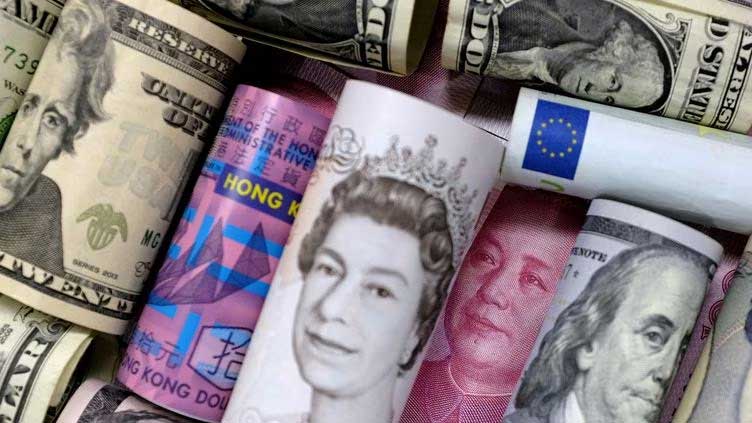World's biggest bond markets hit by relentless selling

Business
World's biggest bond markets hit by relentless selling
LONDON (Reuters) - An unrelenting selloff in world government bonds drove U.S. 30-year Treasury yields to 5% for the first time since 2007 and German 10-year yields to 3% on Wednesday in moves that could hasten a global slowdown, hurting stocks and corporate bonds.
A growing sense that interest rates in major economies will stay higher for longer to contain inflation, ever resilient U.S. economic data and a sharp unwinding of traders' positions for a bond rally have hit home.
In the U.S. Treasury market -- considered the bedrock of the global financial system -- 10-year yields have jumped 20 basis points (bps) to 4.8% this week alone. They are up almost 100 bps this year, having jumped over 200 bps in 2022.
Bond yields move inversely to prices, and asset managers who had held bonds expecting prices to rally are now throwing in the towel.
"Right now there is huge momentum behind the sell off (in Treasuries) because the positioning in the market has been wrong," said Juan Valenzuela, fixed income portfolio manager at asset manager Artemis.
"A lot of people bought into the idea that because the Federal Reserve was reaching the peak of rate hikes, it was time to buy government bonds."
Thirty-year U.S. yields on Wednesday touched the 5% psychological level for the first time since the global financial crisis, and, as the rout spread, Germany's 10-year Bund yield hit 3% , a fresh milestone in a market where yields were negative in early 2022.
Australian and Canadian 10-year bond yields have surged over 20 bps each this week , , and British 30-year government bond yields hit a fresh 25-year high above 5% on Wednesday .
In a further sign of investor nervousness, the closely-watched MOVE bond volatility index is at a four-month high. (.MOVE)
RIPPLES
Government borrowing costs influence everything from mortgage rates for homeowners to loan rates for companies.
The speed of the bond rout sparked alarm across equity markets and drove the safe-haven dollar to its highest in months against the euro, pound and embattled Japanese yen. , ,
World stocks (.MIWD00000PUS) hit their lowest since April on Wednesday, and the cost of insuring exposure to a basket of European corporate junk bonds hit a five-month high, according to data from S&P Global Market Intelligence.

